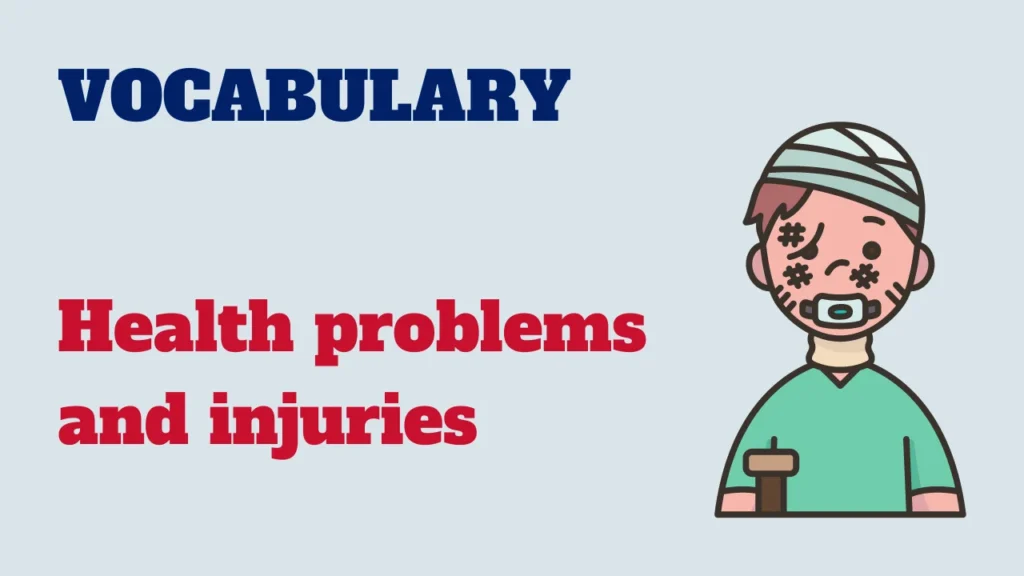Understanding and expressing vocabulary related to health problems and injuries is essential for effective communication in healthcare settings and daily life.

Let’s explore key terms associated with various health issues and injuries.
Health problems and injuries vocabulary
- Illness: A general term referring to a person’s unhealthy condition; a state of poor health.
- Disease: A specific abnormal condition affecting the body or mind, often with characteristic symptoms.
- Injury: Physical harm or damage to the body, often resulting from an accident or trauma.
- Ailment: A minor health condition or sickness that is not severe.
- Symptom: A physical or mental feature indicating the presence of a disease or medical condition.
- Fever: An elevated body temperature, often a symptom of illness or infection.
- Headache: A pain or ache in the head, often caused by tension, illness, or other factors.
- Cough: A sudden expulsion of air from the lungs, often accompanied by a distinctive sound, as a response to irritation or infection.
- Sore Throat: Pain or irritation in the throat, often associated with inflammation.
- Fatigue: Extreme tiredness or exhaustion, often resulting from physical or mental exertion.
- Allergy: A hypersensitive reaction to a substance that does not normally cause a reaction in most people.
- Nausea: A feeling of discomfort or queasiness in the stomach, often preceding vomiting.
- Vomiting: The act of expelling contents from the stomach through the mouth.
- Diarrhea: Frequent, loose, or watery bowel movements.
- Sprain: An injury to a ligament, often caused by overstretching.
- Strain: An injury to a muscle or tendon, often caused by overuse or excessive force.
- Fracture: A break or crack in a bone.
- Burn: Damage to the skin or other body tissues caused by heat, chemicals, electricity, or radiation.
- Infection: The invasion and multiplication of microorganisms in body tissues, leading to illness.
- Chronic Condition: A long-term medical condition that persists over an extended period.
By familiarizing yourself with these health-related terms, you’ll be better equipped to discuss symptoms, seek medical help, and communicate about health issues effectively. Practice using these words in sentences to reinforce your language skills and enhance your ability to express health-related concerns. Stay tuned for more vocabulary lessons on our language-learning journey!
Learn English
Share this 👉 https://quickglish.net/avzu



